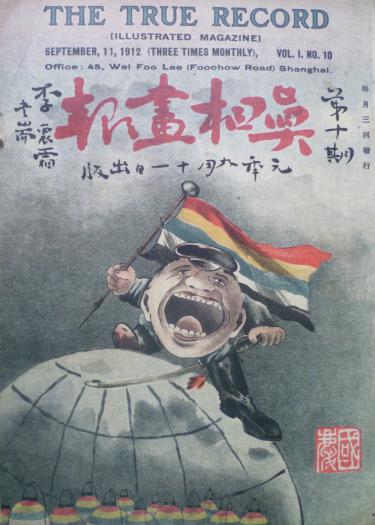Centre for Asian and Transcultural Studies Population Bomb: Apocalyptic Imaginaries, World Hunger and the Threat of Revolution
- Date in the past
- Donnerstag, 21. November 2024, 14:30 - 16:00 Uhr
- Centre for Asian and Transcultural Studies (CATS), 010.01.05 (CATS Auditorium), Voßstraße 2, 69115 Heidelberg
- Dr Alys Moody, Bard College (USA), Division of Languages and Literature
Paul Ehrlich’s 1968 bestseller, The Population Bomb, is animated by a vivid apocalyptic imaginary, which links neo-Malthusian anxieties about mass starvation and overpopulation to lurid fears of global revolution. Beginning with a close reading of this book’s use of apocalyptic imagery and narrative, this lecture proposes an account of how an emerging discourse about world hunger was mobilised to link environmental and natural limits to anticommunist discourse. Setting Ehrlich’s virulently anticommunist text against alternative accounts of world hunger that sought systemic changes to the world economy and agricultural practices, this lecture poses questions about the political uses of apocalyptic rhetoric in the context of Cold War world hunger discourse.

Address
Centre for Asian and Transcultural Studies (CATS)
010.01.05 (CATS Auditorium)
Voßstraße 2
69115 HeidelbergOrganizer
Event Type
Series of events
Talk
All Dates of the Event 'Apocalypse Now. Time, Historicity and Worlds After'
Lecture Series
While periodization — the partition of time into segments with a specific beginning and end — is integral to historical method, it cannot be dissociated from a wider reflection on a key issue: the relation between emic time (time as perceived by historical actors) and etic time (time as established by the scholar’s historical narrative). The relation between emic and etic times is an essential methodological question within human, social, and even natural sciences. This lecture series looks at this this question through a particular lens: the “end of times” or “apocalypses.” How do historical actors perceive it? What happens to historiographical narratives when actors talk about the future as the “end” of time? How has such a vision of the future shaped narratives and periodization schemes?
By focusing on “ends of times” and “apocalypse”, the tensions between time, temporalities and time horizons are to be discussed, both methodologically and empirically, in specific contexts. The three main areas are: 1) political history — the history of revolutions; 2) religious history — the history of last judgements and revelations; and 3) natural history — the history of pandemics, cataclysms and disasters. The first block (political history) will discuss the link between revolution and the end of time, starting with revolutions at the turn of the eighteenth and nineteenth centuries, including the Russian and Chinese revolutions. The second block (religious history) will consider perceptions of the end of time within some of the main religions, considering different takes on apocalyptic revelations, universal floods, millenarianisms and messianic movements. Finally, the third block (natural history) will discuss natural disasters and epidemics, and will feature the controversies over geological eras (such as the Anthropocene) and collapsology.